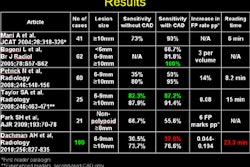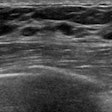The Medicare Payment Advisory Commission (MedPAC) voted today to approve a proposal to repeal the sustainable growth rate (SGR) formula that governs Medicare payments. The move could be the first step in breaking an annual cycle of short-term fixes to the flawed SGR formula.
In a meeting being held October 6-7 in Washington, DC, MedPAC members voted to approve a proposal that would permanently ditch the SGR mechanism, confirmed Arielle Mir, assistant director at MedPAC. MedPAC is an advisory board that provides guidance to the U.S. Centers for Medicare and Medicaid Services (CMS) on how to run the Medicare program.
The SGR was implemented in 1997 as a means to reduce federal healthcare spending each year by tying Medicare reimbursement for physicians to increases in the gross domestic product. However, the cut to physician reimbursement as mandated by the SGR formula was postponed into future years by congressional action, with the size of the cut growing with each postponement.
The next scheduled SGR rate adjustment, in January 2012, would implement a 30% cut in reimbursement under the Medicare Physician Fee Schedule. But preventing this cut permanently carries a high cost: Some estimates put the cost of a 10-year freeze across all services at $300 billion.
Today's action hews to several MedPAC recommendations the commission made at a meeting on September 15; it advised CMS to take the following steps:
- Break the formulaic link between annual updates and cumulative expenditures for fee-schedule services
- Replace the SGR formula with a stable, predictable 10-year path of legislated fee-schedule updates
- Eliminate the 30% cut that is pending for 2012
- Balance the total cost of repeal and the need to ensure beneficiary access to care by sharing the cost of repealing the SGR across physicians, other health professionals, providers in other sectors, and beneficiaries
According to MedPAC's September proposal, a first tier of offsets for the SGR would be about $50 billion over 10 years and would consist of existing MedPAC recommendations, while a second tier would consist of about $180 billion over 10 years in proposals from other sources. In addition, MedPAC has recommended a 2% annual payment hike per Medicare beneficiary for fee-schedule services.
"The premise of [our] effort is that it is in the best interests of the Medicare program over the long term to deal with the SGR issue once and for all," said MedPAC chair Glenn Hackbarth during the September session. "To accomplish that will require difficult choices, not just by MedPAC but much more importantly by the Congress itself."
Today's vote finalizing MedPAC's proposal was almost unanimous -- but at least one commissioner voted no, according to Maurine Dennis, the American College of Radiology's (ACR) senior director for government and economic advocacy.
The ACR remains concerned about MedPAC's recommendation to target specialists, Dennis said. At the September meeting, MedPAC emphasized that because access to primary care is at risk over the next decade -- and patients are more likely to encounter problems finding a new primary care physician than a specialist -- a key way to realign fee-schedule payments to support primary care is to reduce the schedule's conversion factor for specialty services, which will pave the way to increases in fee-schedule revenue, ensure access to care for beneficiaries, and control the overall cost of SGR repeal.
"The ACR remains concerned about the idea of holding payment for primary care at current levels while slashing specialties," Dennis said. "Primary care is part of the rest of the house of medicine."




















